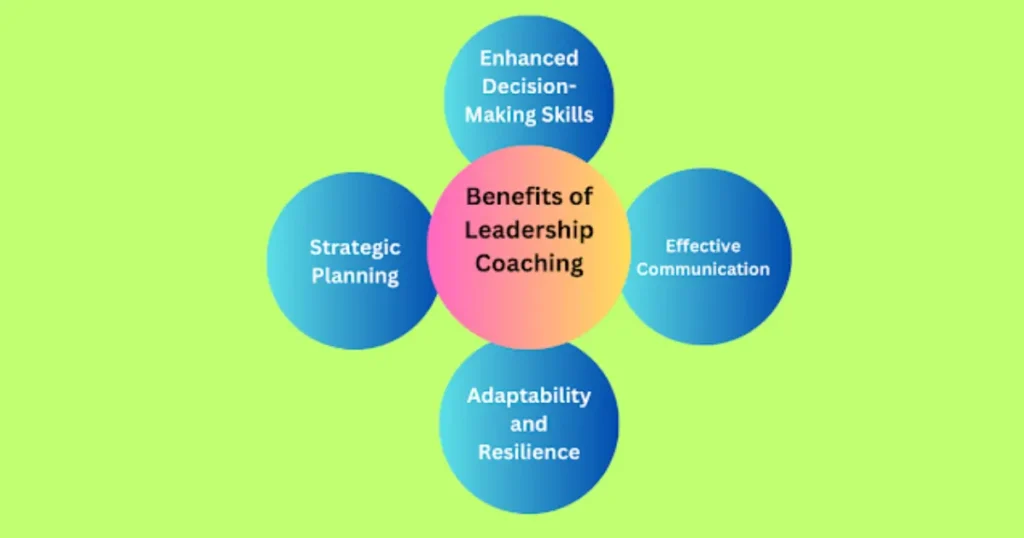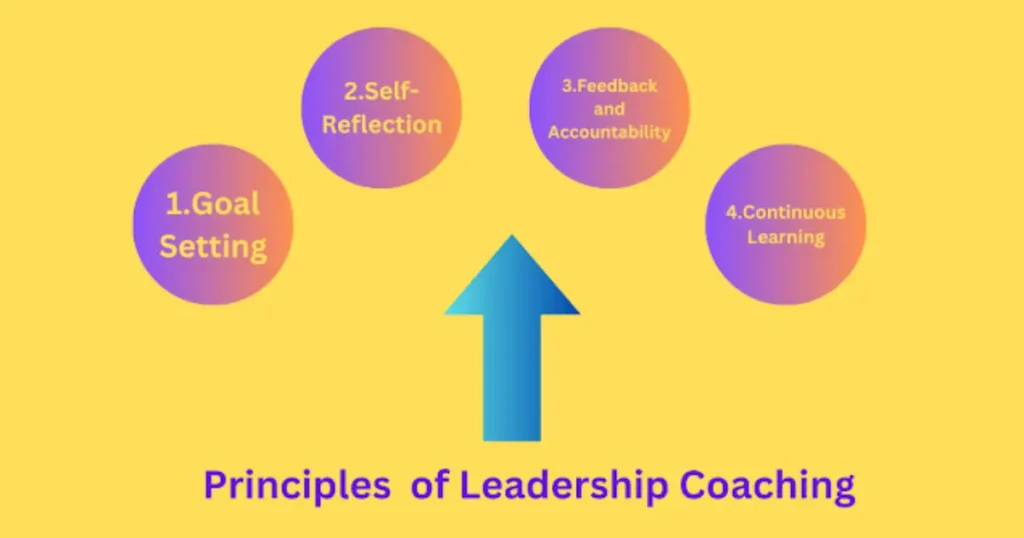Last updated on February 23rd, 2026 at 09:27 am
In today’s busy business world, small business owners always search for ways to grow and succeed. Have you considered how leadership coaching for small business owners could help you achieve your goals? This approach focuses on improving your leadership skills, enhancing team collaboration, and guiding your business toward sustainable growth.
Leadership coaching is not just about fixing problems; it’s about helping you become a better leader and make informed decisions.
This article will explore the benefits of leadership coaching for small business owners, it’s key principles, practical applications, real-life examples, and useful tips to help you get the most out of leadership coaching. Let’s get started!

Why Leadership Coaching Matters for Small Business Owners
Running a small business requires balancing multiple roles—leader, strategist, problem-solver, and mentor. Leadership coaching provides the structure and guidance small business owners need to:
- Navigate complex challenges with confidence and clarity.
- Empower teams to perform at their best.
- Adapt to market changes and drive innovation.
- Achieve sustainable growth through strategic planning.
Quote:
“Leadership is not about being in charge. It’s about taking care of those in your charge.” – Simon Sinek
Insights on Leadership Coaching
According to the International Coaching Federation (ICF) (2023):
- 70% of businesses report improved performance after investing in leadership coaching.
- Employee engagement increases by 50% following coaching interventions.
- Small businesses that incorporate leadership coaching for small business owners see an average of 30% revenue growth within a year.
- Leaders who receive coaching experience a 60% boost in confidence and leadership effectiveness.
Benefits of Leadership Coaching
1. Enhanced Decision-Making Skills:
Leadership coaching sharpens critical thinking and decision-making by teaching entrepreneurs to assess situations comprehensively.
2. Effective Communication:
Coaches help business owners master interpersonal skills, active listening, and conflict resolution, fostering stronger team relationships and stakeholder trust.
Example: A small marketing agency improved team collaboration by implementing communication techniques learned through coaching, boosting project completion rates by 20%.
3. Adaptability and Resilience:
Leadership coaching equips entrepreneurs to handle uncertainties, recover from setbacks, and stay agile in dynamic markets.
4. Strategic Planning:
A coach helps prioritize business goals by setting SMART objectives (Specific, Measurable, Achievable, Relevant, Time-bound) and aligning them with the company vision.
Tip: Break down your long-term vision into quarterly milestones to make progress measurable and manageable.
5. Increased Employee Retention
Leadership coaching fosters better management practices, improving workplace culture and reducing employee turnover by as much as 40%.
Example: A family-owned restaurant retained 85% of its staff during the pandemic by implementing motivational techniques learned through coaching.
Key Principles of Leadership Coaching
1. Goal Setting:
Coaching focuses on measurable goals that tie directly to the business’s vision and mission.
2. Self-Reflection and Awareness:
Entrepreneurs are encouraged to assess their leadership style, strengths, and growth areas to become more effective leaders.
3. Feedback and Accountability:
Coaches provide constructive feedback and hold business owners accountable for implementing changes.
4. Continuous Learning:
Effective leaders are continuous learners. Leadership coaching instills a mindset of curiosity and a commitment to ongoing personal and professional development.
5. Emotional Intelligence
Improving emotional intelligence (EQ) through coaching helps leaders build better relationships, resolve conflicts, and lead with empathy.
Quote:
“The greatest leaders are those most willing to learn.” – John C. Maxwell
Practical Applications of Leadership Coaching
Leadership coaching offers practical solutions for everyday challenges small business owners face:
1. Team Building and Motivation:
Coaches help foster a positive work culture, leading to higher employee engagement and productivity.
Tip: Conduct regular team-building exercises to strengthen collaboration and trust.
2. Conflict Resolution:
Coaching equips entrepreneurs with strategies to handle workplace conflicts constructively and proactively.
Example: A tech startup resolved recurring team disputes by implementing conflict management techniques learned through coaching.
3. Time Management:
Leadership coaching helps small business owners prioritize tasks, delegate effectively, and optimize productivity.
Tip: Use the Eisenhower Matrix to categorize tasks based on urgency and importance.
4. Succession Planning
Coaching helps entrepreneurs identify and mentor future leaders within their organizations, ensuring a seamless transition of leadership.
5. Work-Life Balance
Coaching encourages healthy boundaries and effective time management to avoid burnout and maintain overall well-being.
Success Stories
1. Financial Turnaround
- Business: Local retail store
- Challenge: Declining sales and financial instability
- Coaching Impact: Strategic financial planning led to a 30% increase in sales within six months.
2. Team Collaboration
- Business: Small marketing agency
- Challenge: Poor team dynamics
- Coaching Impact: Improved communication resulted in a 20% rise in productivity and client satisfaction.
3. Crisis Management
- Business: Family-owned restaurant
- Challenge: Navigating pandemic disruptions
- Coaching Impact: Crisis management coaching enabled the business to pivot services and retain customer loyalty.
4. Innovation and Expansion
- Business: Tech startup
- Challenge: Stagnation in product development
- Coaching Impact: Sessions focused on creativity and strategic planning, leading to a 50% increase in user engagement and market expansion.
Choosing the Right Leadership Coach
- Define Your Needs: Identify specific leadership challenges (e.g., decision-making, team dynamics).
- Check Credentials: Look for certifications like those from the International Coaching Federation (ICF)
- Assess Compatibility: Schedule consultations to ensure the coach’s style matches your preferences.
- Seek Testimonials: Ask for case studies or referrals from other small business owners.
- Start with a Trial Session: Many coaches offer free initial sessions—use this to evaluate their approach.

Overcoming Challenges in Leadership Coaching
While leadership coaching is a powerful tool, small business owners face unique challenges. From financial constraints to time limitations, coaches work with entrepreneurs to address these challenges effectively. The article delves into common issues and how coaching provides solutions.
1. Financial Constraints:
Solution- Explore affordable options, such as group coaching or online workshops.
2. Limited Time:
Solution- Prioritize coaching sessions, create a schedule, and leverage virtual coaching platforms for flexibility.
3. Resistance to Change:
Solution- Gradual implementation of coaching insights, emphasizing the positive impact on both personal and business growth.
Measuring Success in Leadership Coaching
- Business Metrics: Monitor revenue growth and market expansion.
- Employee Satisfaction: Use surveys to assess improvements in team morale and engagement.
- Personal Development: Track progress in decision-making, communication, and leadership skills.
- Customer Feedback: Analyze how leadership improvements impact customer satisfaction and retention.
Future Trends in Leadership Coaching
- Tech Integration: AI-driven platforms and virtual coaching sessions are making coaching more accessible.
- Cultural Intelligence: Coaching is adapting to address the needs of globally diverse teams.
- Sustainability Leadership: Coaches are helping leaders integrate sustainability into their strategies.
- Gamification: Innovative coaching tools like gamified learning experiences are gaining popularity.
Final Thoughts
Leadership coaching for small business owners is not just a tool for professional development; it’s a valuable opportunity to grow as a leader. By investing in coaching, you enhance your leadership skills while also contributing to the growth and success of your business.
Quote:
Every great leader was once coached to greatness. The only limit to your growth is your willingness to learn.
Take the first step today and elevate your business with the support of leadership coaching!



